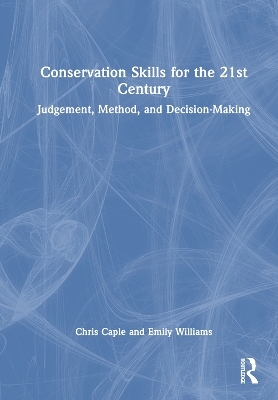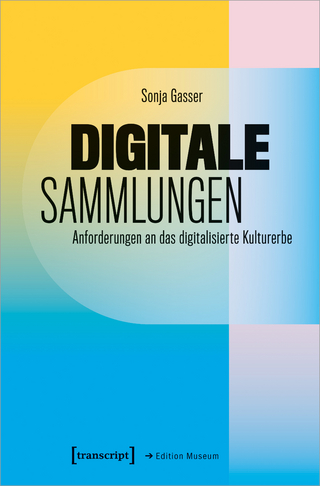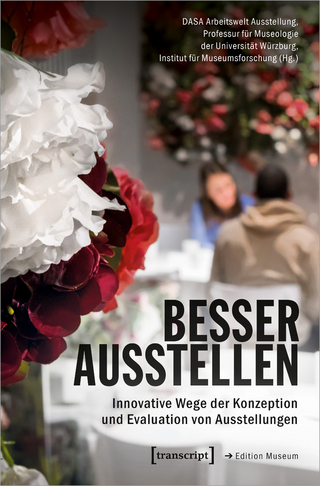
Conservation Skills for the 21st Century
Routledge (Verlag)
978-0-367-44331-3 (ISBN)
Conservation Skills for the 21st Century provides a much-needed update to the original Conservation Skills volume, presenting an overview of current issues facing conservators of historic and artistic works.
Beginning with the basics – why the past is important, as well as an overview of the nature and history of conservation – the book allows the reader to develop a holistic appreciation of the subject. As with the first edition, this volume assists with the development of judgement in conservation students and young professionals. A selection of new case studies representing issues conservators are likely to face in the 21st century illustrates the crucial considerations that must be made when proposing and executing a conservation treatment. Incorporating recent developments and use of new technologies in conservation processes, the book also covers topics such as conservation ethics; recording and documentation; investigating and cleaning objects; stabilisation and restoration; values, decision-making, and responsibilities; preventive conservation; approaches to the treatment of working and socially active objects; sustainability in conservation; and the conservator’s role as advocate.
With detailed case studies and written in a clear, accessible style, Conservation Skills for the 21st Century remains essential reading for student conservators and conservation professionals around the globe working across a wide range of conservation disciplines.
Chris Caple is Emeritus Reader in Archaeological Conservation having been director of the Durham University postgraduate programme in artefact conservation 1988–2018. Author of 7 books including the first edition of Conservation Skills: Judgement, Method and Decision Making. He is currently writing up his archaeological excavations at Nevern Castle. Emily Williams is Associate Professor of Archaeological Conservation at Durham University where she directs the MA in the Conservation of Archaeological and Museum Objects. Prior to this she was the Senior Conservator of Archaeological Materials at the Colonial Williamsburg Foundation. She has worked at museums or sites in Australia, Belgium, Bermuda, Egypt, Iraqi Kurdistan, Syria, Tunisia, and Turkey.
1. Reasons for Preserving the Past; 2. The History of Conservation; 3. Conservation Aims and Ethics; 4. Objects: Their Investigation and Recording; 5. Cleaning; 6. Restoration; 7. Stabilisation; 8. Preventive Conservation and Storage; 9. Preserving Intangible Heritage: Working and Socially Active Objects; 10. Perception, Judgement, and Decision-Making; 11. Responsibilities, Skills, and Sustainable Practices in the 21st Century.
| Erscheinungsdatum | 29.04.2023 |
|---|---|
| Zusatzinfo | 2 Line drawings, black and white; 54 Halftones, black and white; 56 Illustrations, black and white |
| Verlagsort | London |
| Sprache | englisch |
| Maße | 174 x 246 mm |
| Gewicht | 680 g |
| Themenwelt | Kunst / Musik / Theater ► Kunstgeschichte / Kunststile |
| Reisen ► Reiseführer | |
| Geisteswissenschaften ► Archäologie | |
| Geisteswissenschaften ► Geschichte ► Hilfswissenschaften | |
| Sozialwissenschaften ► Pädagogik | |
| ISBN-10 | 0-367-44331-7 / 0367443317 |
| ISBN-13 | 978-0-367-44331-3 / 9780367443313 |
| Zustand | Neuware |
| Haben Sie eine Frage zum Produkt? |
aus dem Bereich


